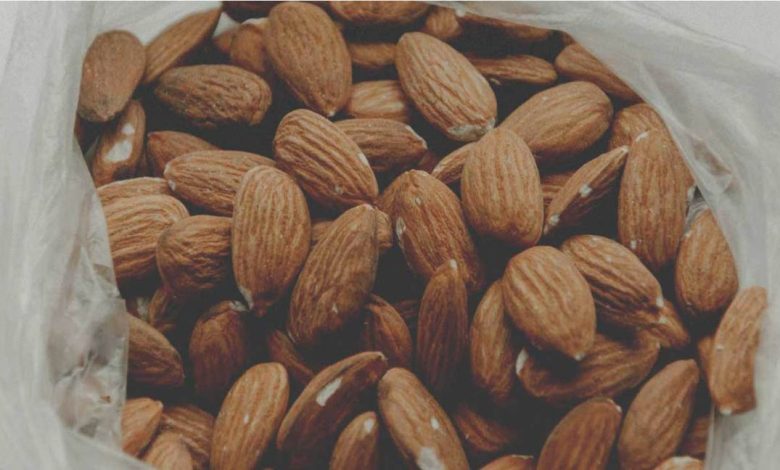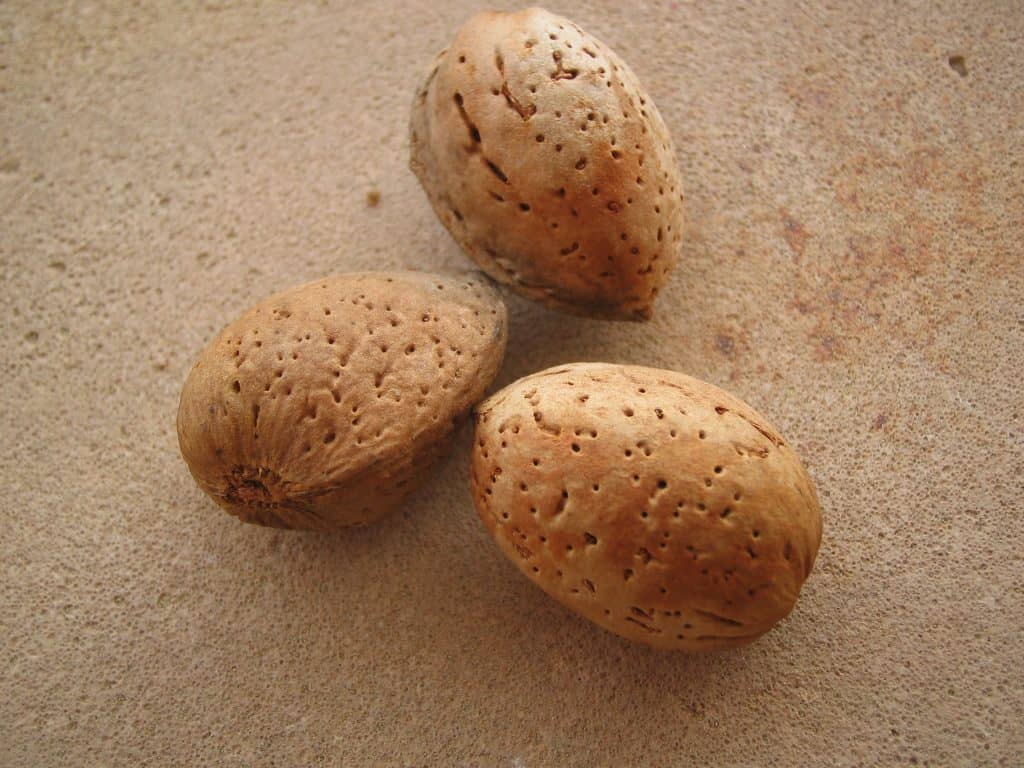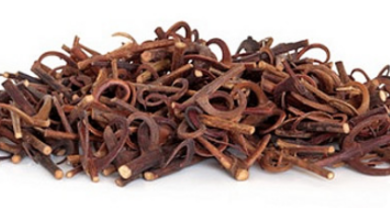Properties of Almonds: [A Very Powerful Food]

Almonds are dried fruits from the almond tree withextraordinary qualities.
They have an outer shell that turns brown when it dries and inside is the fruit that we usually consume and that is white to bone. They are the seeds of the almond tree, which reachesreach 10 meters in height.
What are the health benefits of almonds?
 Its consumption dates back to ancient times in areas near India and North Africa.
Its consumption dates back to ancient times in areas near India and North Africa.
Currently the largest producers of this fruit are the United States, Spain, Syria and Italy. It is used in an infinity of dishes, as a snack and even in body creams, soaps and other cosmetics.
There are multiple varieties of almonds, but they are divided into two large groups:those with a soft shell and those with a hard shell.
If they are very difficult to open, what you can do is let them soak overnight. Likewise, there are bitter and sweet varieties.
effective for weight loss
If your intention is to lose weight, you should know that almonds are a dry fruit that have a high fat content.
But fat is not bad. In fact, the fat in nuts is great for our health.
Also, almonds havea powerful satiating effect.So we will be less hungry in later hours.
Oxidation and reduction of LDL Cholesterol
Almonds prevent the oxidation of LDL cholesterol and also lower its blood levels.
Lowering LDL cholesterol levels could reduce the risk of coronary heart disease.
Although like everything, this must be combined with a healthy diet and an active life.
Blood pressure reduction
Almonds contain magnesium. This mineral will help reduce blood pressure.
Lack of magnesium can lead to blood pressure problems. Correcting these levels can reduce risks in terms of blood pressure.
Blood sugar control
As we have mentioned before, nuts in general are rich in fat and fiber.
So they are usually an ideal food for diabetics. They help control blood sugar levels.
The body will be less resistant to insulin, and therefore at a lower risk of getting type 2 diabetes.
Almond nutritional value (100g)
| carbohydrates | 21.55g | |
|---|---|---|
| Starch | 0.72g | |
| sugars | 4.35g | |
| Dietary fiber | 12.5g | |
| fats | 49.93g | |
| saturated | 3.802g | |
| trans | 0.015g | |
| monounsaturated | 31.551g | |
| polyunsaturated | 12.329g | |
| protein | 21.15g | |
| Water | 4.41g | |
| Retinol (vit. A) | 2μg (0%) | |
| β-carotene | 1μg (0%) | |
| Thiamin (vit. B1) | 0.205mg (16%) | |
| Riboflavin (vit. B 2) | 1,138mg (76%) | |
| Niacin (vit. B3) | 3,618mg (24%) | |
| Pantothenic acid (vit. B 5) | 0.471mg (9%) | |
| Vitamin B6 | 0.137mg (11%) | |
| Folic acid (vit. B 9) | 44μg (11%) | |
| Vitamin E | 25.63mg (171%) | |
| Calcium | 269mg (27%) | |
| Copper | 1,031mg (0%) | |
| Iron | 3.71mg (30%) | |
| Magnesium | 270mg (73%) | |
| Manganese | 2,179mg (109%) | |
| Match | 481mg (69%) | |
| Potassium | 733mg (16%) | |
| Selenium | 4.1μg (9%) | |
| Sodium | 1mg (0%) | |
| Zinc | 3.12mg (31%) | |
Source: Wikipedia
What are the nutritional properties of almonds?
 It is characterized by beingone of the nuts with the highest fiber content(14 grams per 100), making them an ideal food to improve intestinal health and avoid constipation.
It is characterized by beingone of the nuts with the highest fiber content(14 grams per 100), making them an ideal food to improve intestinal health and avoid constipation.
Almonds have very little water and for the fiber to pass through the digestive tract it is necessary to drink plenty of water.
Almonds have about20% (every 100g) of protein.
These are essential for the production of antibodies, tissue -forming enzymes, hormones, and some neurotransmitters.
More than 50% of its composition are good fats.
They work by reducing cholesterol in the body, as well as reducing future cardiovascular problems.
In addition, its fat content helps neuronal development and maintenance. Being excellent to help us stay focused and prevent diseases.
Remember that most of the brain is made up of lipids.
Lastly, the almondshave carbohydrates (about 18% per 100 g)that make us feel full just like proteins.
What vitamins and minerals do almonds have?
Almonds have ahigh content of vitamin E.
It is a powerful antioxidant that helps keep skin healthy and protect cell membranes from oxidation, which translates into preventing aging.
The antioxidants are found mainly in the skin so avoid removing it when consuming them.
Also, it has been observed that the consumption of vitamin E reduces the risk of suffering from some types of cancer and degenerative diseases such as Alzheimer’s.
Thanks to its content of magnesium and good fats, it is good for people with high blood pressure to consume them.
In almonds we can also find minerals such as manganese, copper, vitamin B2 and phosphorus and potassium. All of them minerals and compounds necessary for the body.
How many calories does an almond have?
Although almonds have multiple benefits, their consumption must be moderated since they are high in calories.
100 grams of almonds give us approximately 600 calories.
The recommended daily amount is between 20 and 30 grams, which is equivalent to about 15 almonds and 170 calories.
If consumed in moderation, they are ideal for diets that seek to lose weight, since all the compounds it contains help you feel full and make you want to eat less during the day.
In addition, the fact that it is high in calories means that it provides large doses of energy.


![Photo of Blanket Irrigation: [Concept, Advantages, Disadvantages and Crops]](https://www.complete-gardening.com/wp-content/uploads/2022/08/blanket-irrigation-concept-advantages-disadvantages-and-crops-390x220.png)

![Photo of Prune a Carob: [Importance, Time, Considerations and Steps]](https://www.complete-gardening.com/wp-content/uploads/2021/06/Algarrobo_1615408533-390x220.jpg)